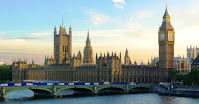There is much to be done in the legal world and
This blog does not offer legal advice and should never be used as a substitute for professional legal advice. Posts are not usually updated.
18 August 2021
Last Post and Cheerio
A Codified Constitution?
UK constitutional arrangements - the legislative power of Parliament
Parliament is the UK's supreme legal authority. Parliament's website sets out the principle -
"Parliamentary sovereignty is a principle of the UK constitution. It makes Parliament the supreme legal authority in the UK which can create or end any law ....."
There are good grounds to question the legal basis for the "often accepted without question" Diceyan view of parliamentary sovereignty but, for the purposes of this post, let us adopt the stance that parliament has legislative supremacy. [See this article on the Constitutional Law Group blog].
The word "sovereignty" has different meanings - (discussed at Watching the Law October 2020). The term "Parliamentary Sovereignty" refers to the point that Parliament has legislative supremacy - that is, the power to make any law whatever. Further, no person or body is recognised by the law as having a right to override or set aside the legislation of Parliament.
The law textbooks
16 August 2021
UK constitutional arrangements ~ House of Lords
"For Parliament to have legitimacy, it must be elected. The House of Lords should be a fully elected second chamber" - Unlock democracy
During the Brexit campaign there was a common complaint that the European Union had a democratic deficit - see, for example, EU facts behind claims: democracy and Civitas - Democracy in the EU (pdf).
Such concerns are usually levelled at either the "unelected" Commission in Brussels or at the European Parliament which is elected by the voters in the Member States but only has the powers given to it by the European Treaties.
Critics of the EU
15 August 2021
A villain in the constitution
 |
11 August 2021
The Mark Duggan case ~ a recent report by Forensic Architecture
Brief facts:
On the evening of 4 August 2011,
08 August 2021
On-going Inquiries ~ catch up
Here is a "catch-up" on a number of ongoing inquiries -
Independent Inquiry Child Sexual Abuse - website - set up 7 July 2014 but reconstituted in February 2015 as a statutory inquiry under the Inquiries Act 2005 - Since 11 August 2016, chaired by Professor Alexis Jay. The inquiry has issued several investigation reports as well as an Interim Report to Parliament (April 2018). The Inquiry website states 'although our programme of public hearings is now complete, work is ongoing and all information gathered with inform the Chair and Panel's recommendations in the Inquiry's Final Report.'
Undercover Policing - website - set up 12 March 2015 - first Chairman
04 August 2021
Recent articles: Dissolution of Parliament ~ Judicial Review ~ Constitutional failings
A number of interesting articles have been published recently about the Dissolution and Calling of Parliament Bill and the Judicial Review and Courts Bill.
Dissolution and Calling of Parliament Bill:
This is a government bill introduced to repeal the Fixed-term Parliaments Act 2011 and to "revive" the former prerogative power to dissolve Parliament so that a Prime Minister will be able to "call" a general election at any time. It appears that the revived power will exist in law only because of the new Act. The power will not be justiciable in the courts. See the House of Commons Library briefing
Two earlier posts
-
See also Later post 5 July - Tommy Robinson Appeal - Observations A common saying is "A lie can travel halfway around the world bef...
-
Update 21st April 2014: The defence discussed in this post is to be abolished from 13th May 2014 though the abolition is not retrospectiv...
-
Procuring miscarriage is a criminal offence which carries a maximum punishment of life imprisonment. The Offences against the Person Act ...
Online safety for under 16s
On Monday 16 February, the Prime Minister's Office (10 Downing Street) announced that the 'Government will give parents and carers g...










